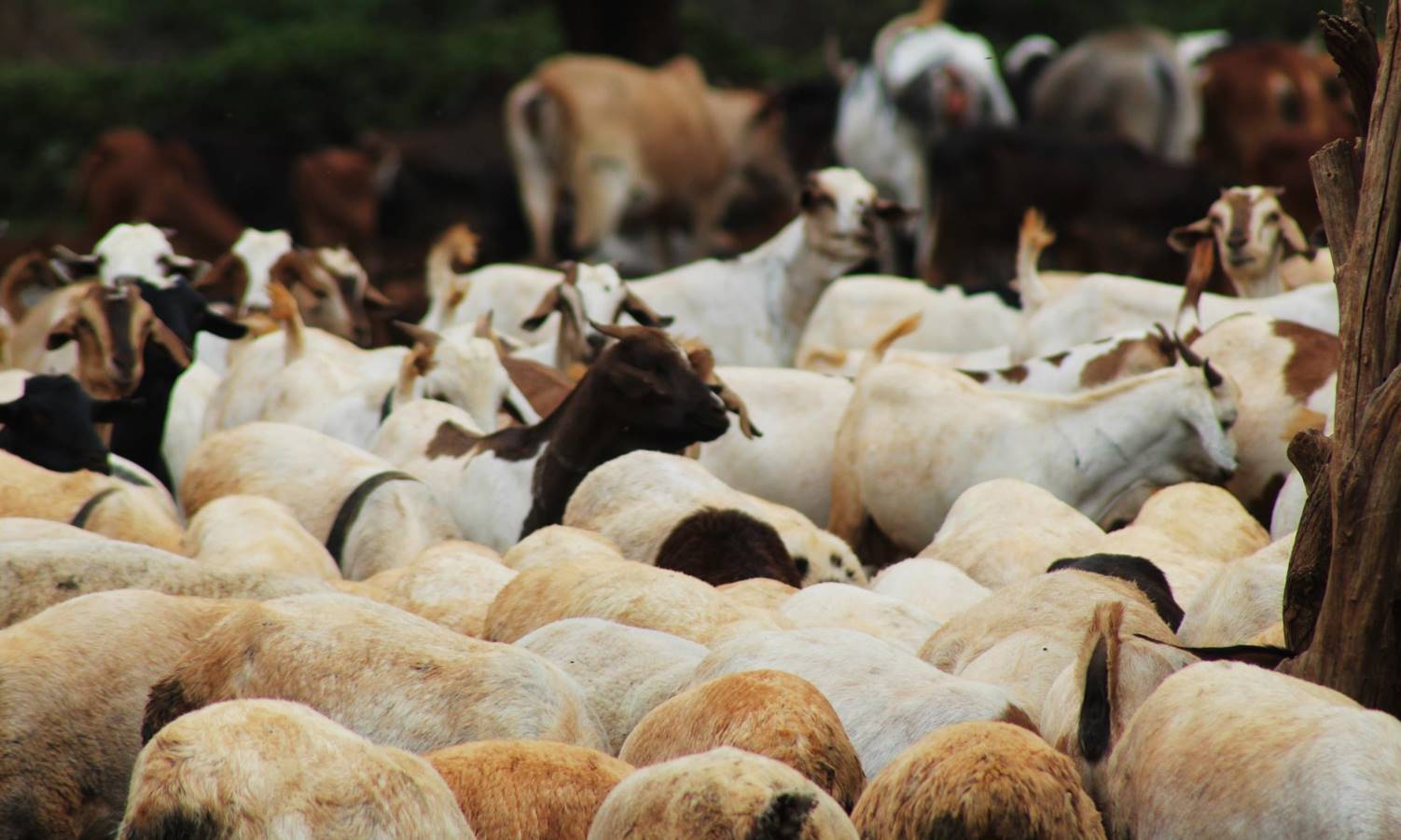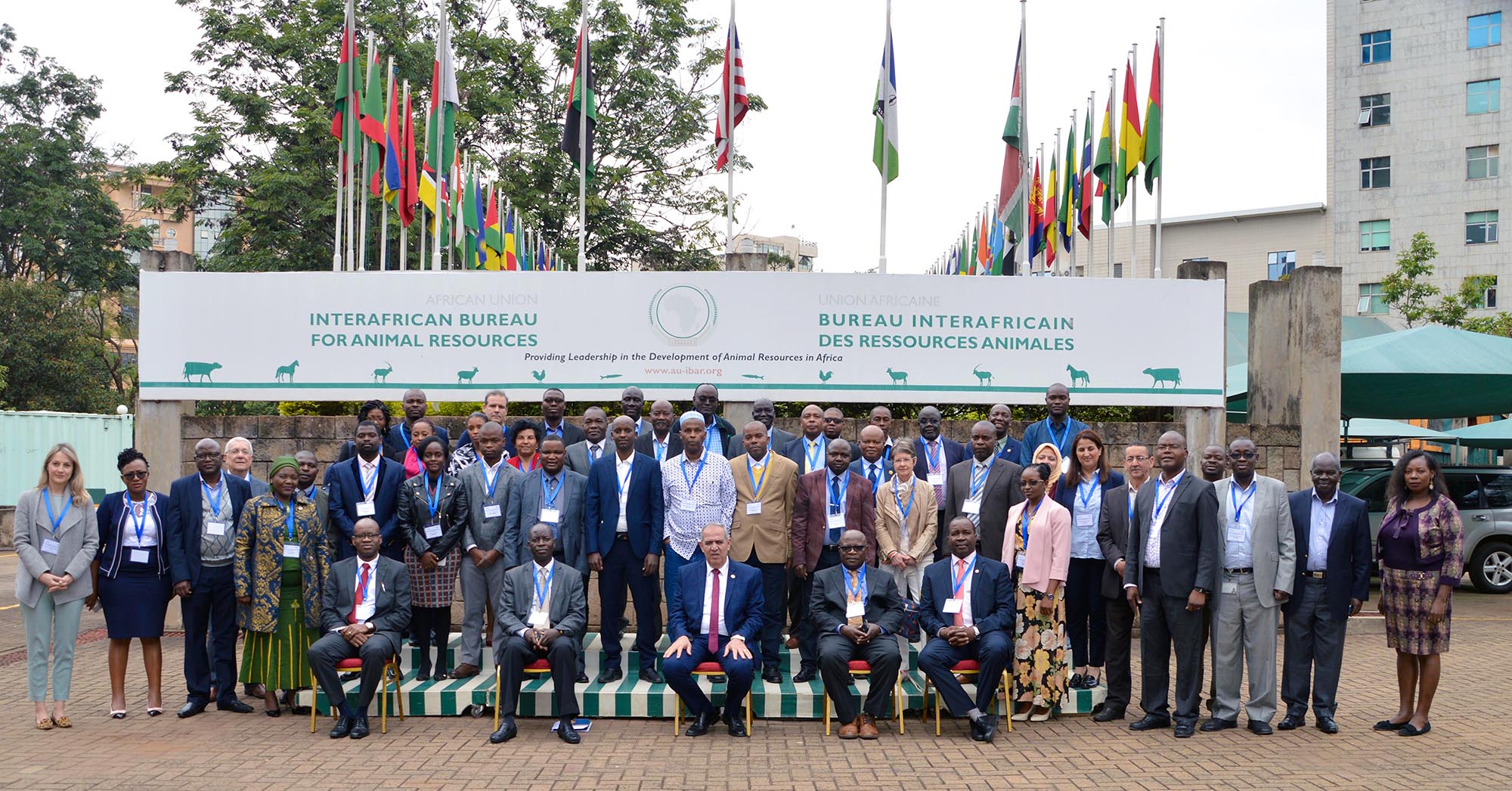Regional training workshop on the OIE procedure for the official status recognition and endorsement of national official control programme with regard to peste des petits ruminants (PPR) for targeted African countries.
The African Union’s Interafrican Bureau for Animal Resources (AU-IBAR) and the OIE pooled resources to jointly convene a regional training workshop on peste des petits ruminants (PPR) in the framework of the Cooperation Agreement between the two organisations. The Director/Head of Mission AU-IBAR, Prof Ahmed El Sawalhy, in his opening speech reminded the countries that the Pan African Programme for the Control and Eradication of PPR is aligned to the Global Strategy for the Control and Eradication of PPR and will continue to be used to assist countries.
The workshop focused on the OIE procedures for the official status recognition and endorsement of national official control programmes for PPR and was held in Nairobi, Kenya from 11-13 June 2019. Forty-nine (49) key officials participated from 17 targeted African countries (Algeria, Cabo Verde, Comoros, Djibouti, Chad, Kenya, Lesotho, Malawi, Mozambique, Morocco, Namibia, Nigeria, Senegal, Sao Tome & Principe, Seychelles, Zambia and Zimbabwe). These countries were those considered to have the possibility of their official control programme endorsed by the OIE and to progressively achieve eradication or at the PPR post eradication stage and ready to apply for official recognition of free status.
Whilst several African countries have never reported the disease or PPR has been reported absent for a number of years, only five (5) African countries, namely Botswana, eSwatini, Madagascar, Mauritius and South Africa have an official recognition of disease-free status and one (Namibia) has a zonal disease-free status for PPR.
Over 30 African countries have been assisted to develop their national strategic plans, but resource limitations have hindered implementation. Therefore, with the capacity built within the countries and with sustained support, there is great potential to increase the number of countries with an official free status for PPR in Africa.
The workshop was interactive and met its objectives and the expectations of the participants. The key outcomes were shared information on the OIE procedures, guidelines and tools available to the countries to facilitate development of dossiers for submission of applications, epidemiology and laboratory activities, including surveillance and diagnostics at country level to collect the necessary information required for compiling the dossiers. The OIE, AU-IBAR, AU-PANVAC and OIE Reference Laboratories for PPR, underlined their support to the region and countries through -among other programmes- the Global Strategy for the Control and Eradication of PPR, Pan African Programme for the Control and Eradication of PPR, PPR vaccine certification, test methods and confirmatory diagnosis.
The Nairobi PPR training workshop highlighted the possibility of eradicating the diseases and success in official recognition of free status as was demonstrated by two countries, Morocco and Namibia. The desire by countries to move forward was demonstrated through their strong engagement and commitment to the process, and Dr Samuel Wakhusama, OIE Representative on behalf of the OIE Director General, thanked Dr Obadiah Njagi, OIE Delegate and Chief Veterinary Officer of Kenya, for the support and assured all of OIE`s commitment to the Region and in good partnership with AU-IBAR and other partners to eradicate PPR by 2030 for the benefit of Member Countries.
All pictures © communication (au-ibar) 2019, except when mentioned otherwise.
PDF - 2.33MB


